Under the gleam of the full Moon, the group of 12 women moved at a meditative pace through the woods along Old King’s Highway and past the still ponds of Wellfleet. Some walked in silence; others conversed under the arching trees and the scattered stars.
“It kind of felt like we were dream-walking,” says Ruby Warner, 23, who grew up in Wellfleet and recently graduated from Middlebury College. “You couldn’t see any reflected facial expressions or emotions. It was all just what you were saying and what you were hearing.”
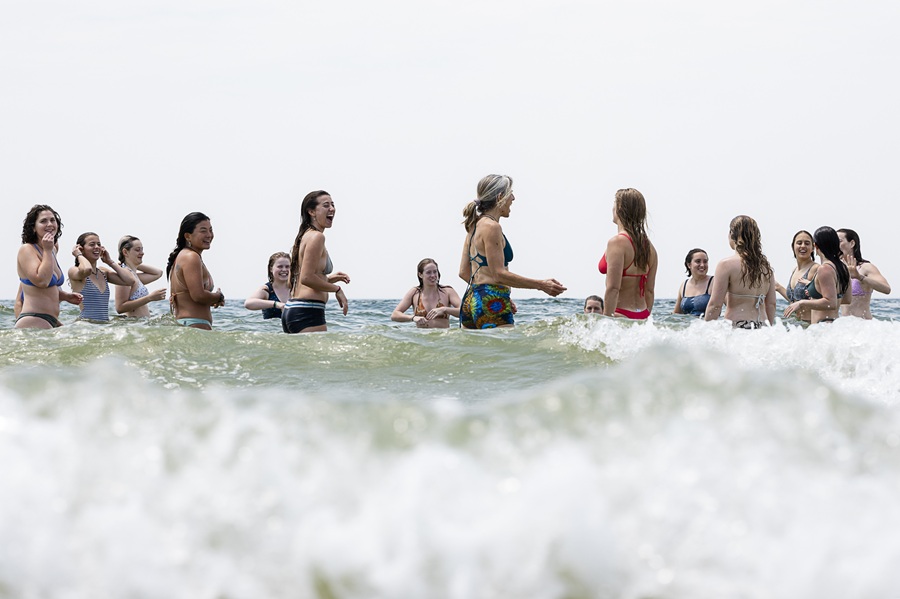
That night was one of three Warner spent with a group of women ages 15 to 26 on a retreat designed to connect them with “the commons” — the Outer Cape’s shared land, water, and traditions.
Led by Wellfleet writer Elspeth Hay and New York City radio producer Sue Jaye Johnson, they ventured into the local landscape to learn more about the place they call home.
Hay and Johnson, who are old friends, say they’ve long wanted to bring together young people in nature this way. Early this summer, their vision came to life as the “Commons Keepers.”
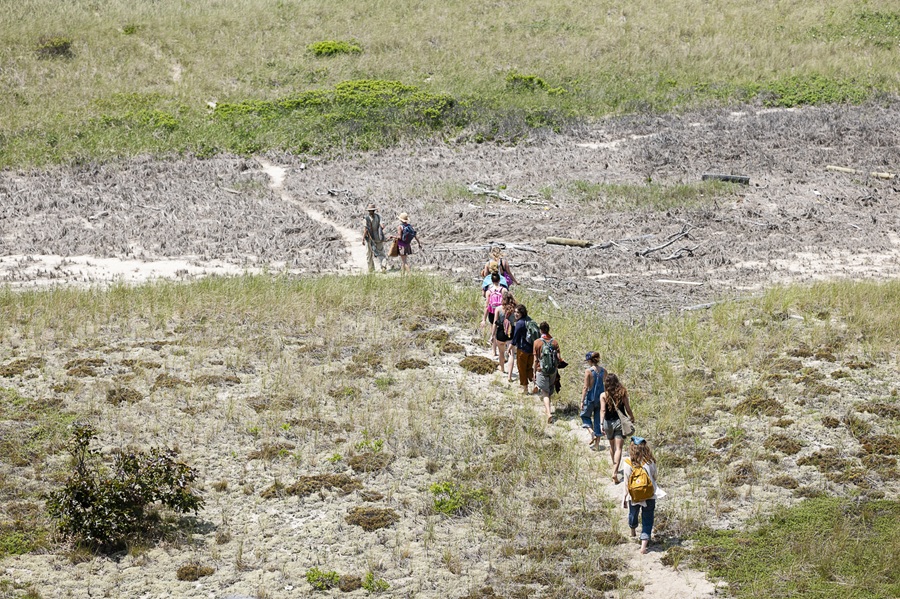
The idea is something like scouting, perhaps, but places greater emphasis on prayer, ceremony, and sacred ecology, Johnson says. “Not in the traditional sense of religion,” she adds, but “awake to all that is and how we are a part of everything.”
Hay says it’s about learning that “a meaningful, rewarding, successful life can mean being rooted in one place, caring for that place, and really learning how to be in a relationship with it.”
On their first time out in late June, the retreat participants were “water keepers.” The group spent time in Cape Cod Bay, in ponds, and in the ocean. Biologist John Portnoy guided the group on a walk in the Herring River estuary, explaining the importance of the restoration of the marsh ecosystem to maintaining water quality and preventing mosquito larvae from forming.
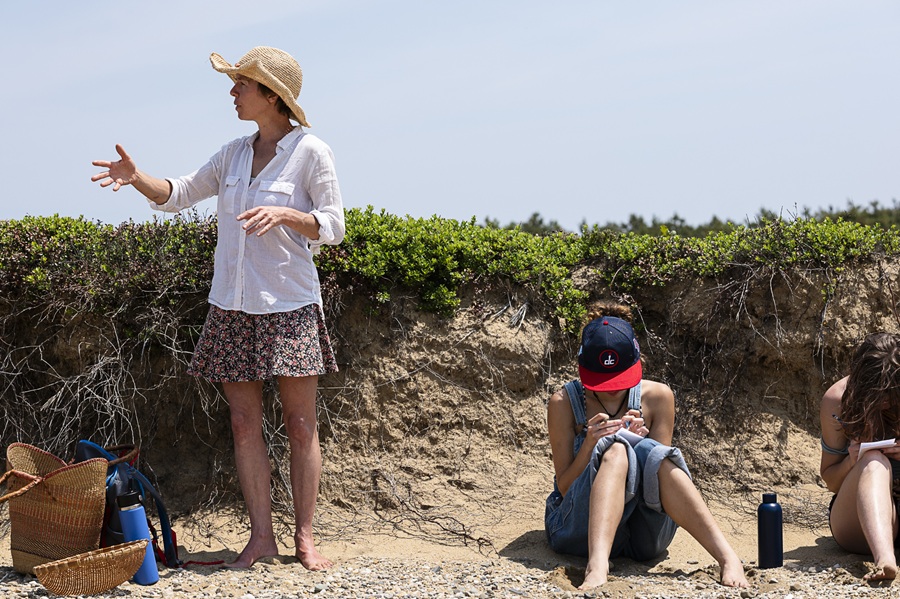
They also explored the land with Sarah Naciri, an herbalist and forager who lives in Truro, and turned their attention to craft with a willow weaving lesson led by Hay. Having that difficult project result in a beautiful finished basket was particularly memorable, Johnson says.
On leisurely walks, the women could simply wander, appreciating their surroundings and getting to know one another. And after long days outdoors, they gathered around Johnson’s outdoor table for dinners of locally sourced dishes, including carrot slaw, purple cabbage, and rose butter. The group slept in a tent in set up in Johnson’s yard.
At the end of the three days, they left feeling closer to one another.
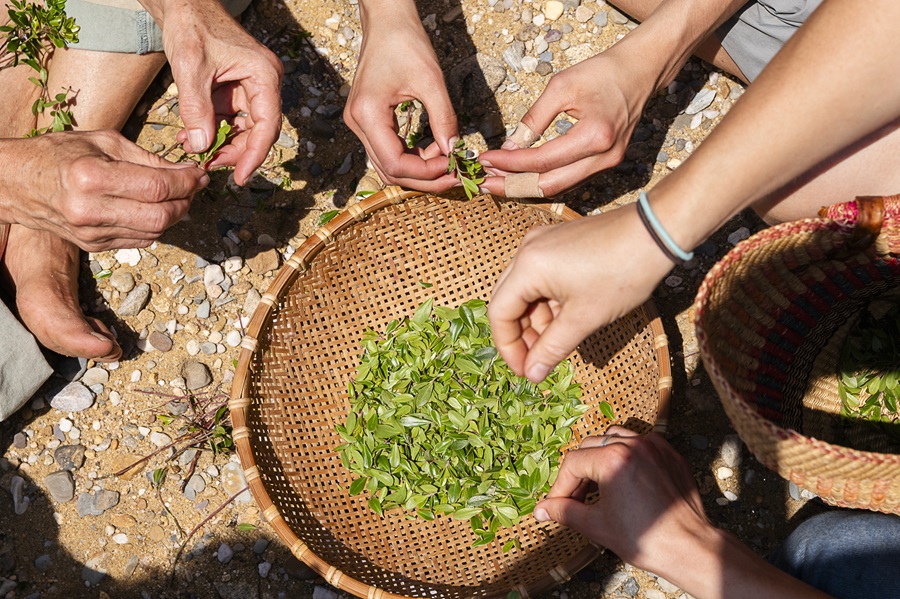
It was about “forming trusting relationships with people in the community,” says Olivia Bois, who lives in Provincetown and has worked as an outreach coordinator for the nonprofit Sustainable CAPE.
Bois, who had almost had to back out of the retreat because of child-care challenges, was grateful for the group’s support. She says it came before they had even met.
“Jaye, Elspeth, and everyone in the group embraced my schedule,” Bois says. The session wasn’t designed for children, but they helped her navigate bringing her daughter along so that she could participate.
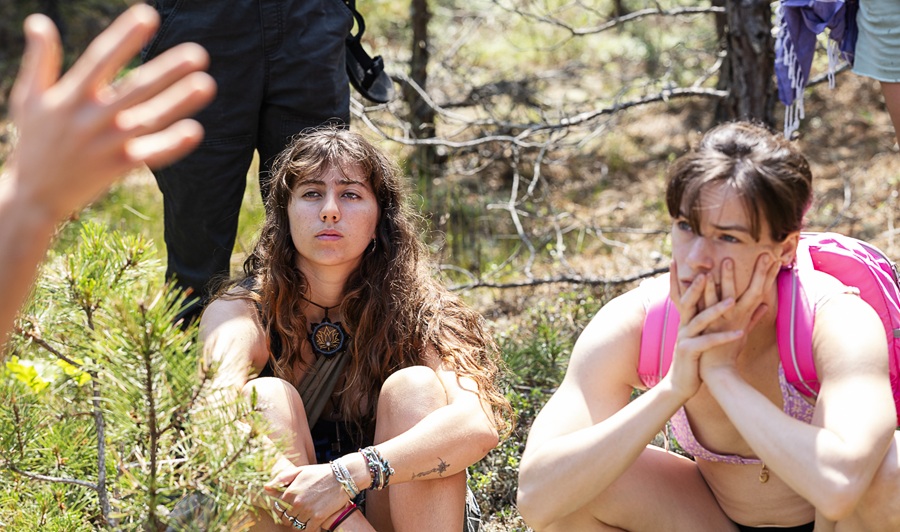
The three-day retreat cost $250 per participant — which the organizers call a suggested donation. Hay and Johnson are working to incorporate the Commons Keepers as a nonprofit, and a Changemaker Fund grant from the Provincetown Commons allowed for a sliding scale for the registration fee and some full scholarships.
They also have one-day walks and skill-building planned to engage participants before another longer trip is organized. They are working on one that has to do with the antithesis of water: fire.
“I’m thirsty for more,” Bois says. “Water keeper, fire keeper, whatever element keeper it is, I want to be there.”
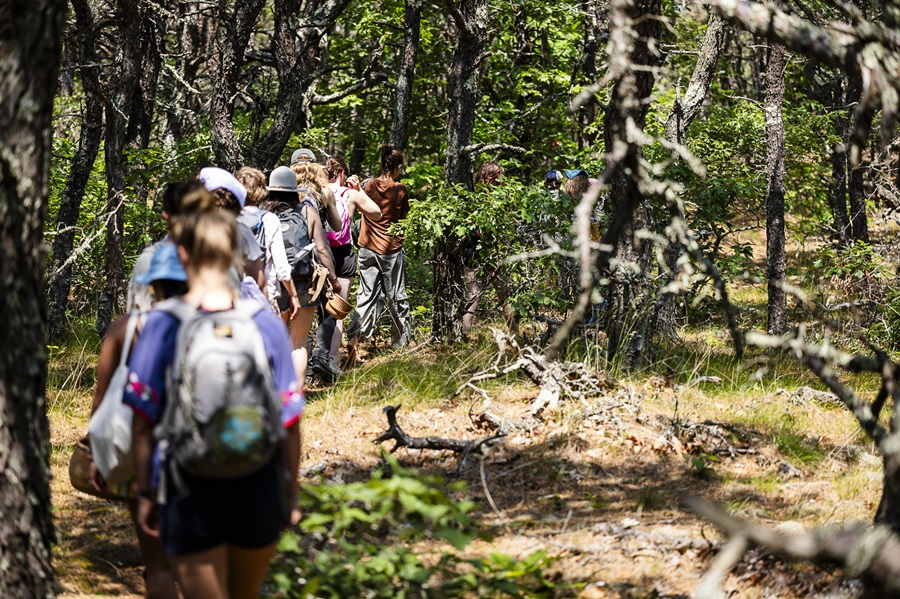
In the meantime, Hay and Johnson have other community-driven environmental initiatives in mind. One project they are particularly excited about is a gleaning program inspired by the Island Grown Initiative on Martha’s Vineyard. The idea is to work with growers and seafood harvesters to glean food that would otherwise be going to waste and get it to food pantries and people in need, Hay says.
This first retreat included women — people who have long taken care of the “commons,” Hay says. They hope to expand their audience to include a wider cross-section of young people on the Outer Cape, offering them experiences that cultivate a deeper sense of belonging, stewardship, and relationship with this place.



